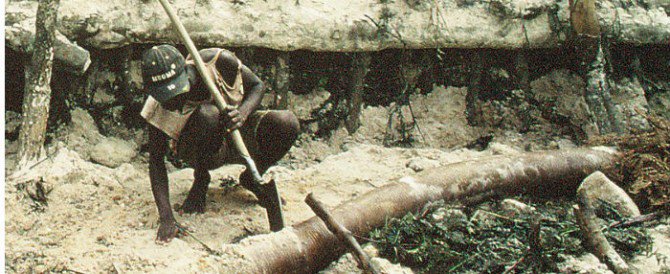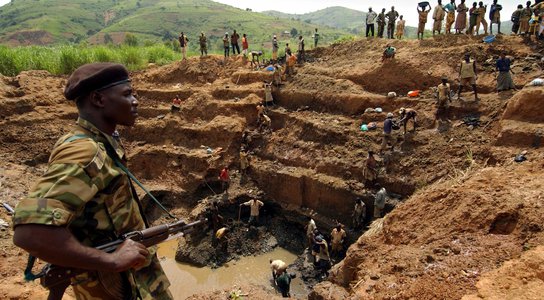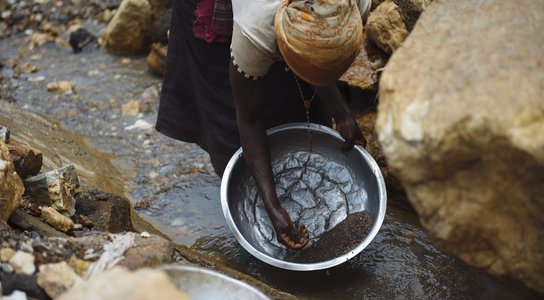The Central African Republic (CAR) sits on a knife-edge. Clashes amongst armed groups are widespread and civilians are the ones bearing the brunt of the violence. Right now, more than two million people are in need of assistance and around 400,000 have been displaced from their homes.
Today government officials, industry leaders, and NGOs are gathered in Guangzhou, China, for the annual plenary meeting of the Kimberley Process – the world’s most high-profile diamond certification scheme. CAR will be on the agenda. In a bid to halt the trade in ‘conflict diamonds’ the country was suspended from the Kimberley Process in 2013—the year in which Seleka rebels launched a violent coup that ousted then President Bozize. Abuses by the predominantly Muslim rebel group spurred a vicious backlash from the mostly-Christian anti-balaka militias. Both sides stand accused of serious human rights violations and killing and wounding thousands of civilians, while displacing hundreds of thousands more.

The country’s diamonds—targeted by both sides of the conflict—should no longer be reaching international markets following CAR’s suspension from the Kimberley Process. But evidence shows they are. An estimated 140,000 carats of diamonds, worth US$24 million, have been smuggled out of the country since the suspension according a recent report by the UN Panel of Experts on CAR. In May this year, a shipment of 6,634 carats of falsely-certified diamonds was seized in Antwerp, according to the same report. The Kimberley Process Working Group of Diamond Experts noted that it was highly probable that the diamonds had originated in the Central African Republic.
Research conducted by Global Witness indicates that profits from CAR’s diamond mines have funded both the conflict’s main two rival groups. Leaders of the former Seleka alliance profited from diamond trading while in power, and have continued to do so as they now control diamond-rich regions in the eastern part of the country, including Bria and Sam-Ouandja. Satellite imagery commissioned by the Kimberley Process indicates that rough diamond production has been increasing in Sam-Ouandja—an area where no international forces are present. Members of the former Seleka are also levying taxes on aircrafts transporting diamonds, and are demanding protection payments from collectors. In the west of CAR, some artisanal diamond production is also under the control of anti-balaka militias.
Stronger oversight and more effective due diligence by trading companies is necessary at all levels of the diamond pipeline—including major trading hubs—to ensure that diamonds from CAR do not fuel the conflict or stand in the way of efforts to address the current humanitarian disaster. The Kimberley Process should also continue its vigilance and monitoring of possible illicit movements of diamonds from CAR in cooperation with CAR’s neighbouring countries.
Despite the instability afflicting CAR and the limited control the transitional government exercises over its territory and natural resource wealth, the transitional government and some international stakeholders are calling for CAR’s suspension to be lifted, on the grounds that revenues are needed to help revive the country’s broken economy.
But even if the diamond trade were to restart under the current conditions, evidence suggests it would make only a very modest contribution to the estimated US$550 million the country needs in humanitarian and economic funds. In 2010 the government received only US$20 million in revenue from the mining sector, of which at most US$11 million was derived from diamond mining.
In any means, such a decision would be short-sighted. Global Witness believes that any efforts to restart the trade in diamonds would at this stage be detrimental to the cause of peace. Lifting the suspension would likely be of far greater benefit to the armed groups that control them, than to the people of CAR. Until concrete measures are taken to enhance the governance of the precious natural resources that belong to the people of CAR, the risk that the diamond trade will fuel conflict and serious human rights abuses remains unacceptably high.


